
We're committed to the protection, restoration and sustainable governance of aquatic environments
Aquatic environments cover more than 70% of our planet's surface, and the value of the global oceans is estimated to be US$24 trillion.
Our international community of inter-disciplinary researchers are working to tackle challenges impacting aquatic systems worldwide. These include the climate, pollution, and biodiversity crises, and the safeguarding of human health and wellbeing.
We are committed to research that supports evidence-driven policy and decision-making, and better governance of our aquatic environments for the common good. New holistic solutions are urgently needed.
Ready to explore?
Use the links below to jump to different sections of the page

Our mission
The Centre for Blue Governance (CBG) aims to promote sustainable aquatic resource management through research, policy development, social and environmental justice, and education. We provide inter-disciplinary expertise to create and implement blue growth strategies in countries and political entities around the world. We also strive to expand blue economic perspectives by encompassing marine and freshwater systems and conceptualising them as development spaces.
The CBG tackles current research themes as well as elaborating on and supplementing established ideas. Our work encompasses numerous sub-topics within five central themes.
Explore our themes below.
What is blue governance?
The blue economy is an economic term relating to the sustainable exploitation of marine and freshwater resources for economic growth, improved livelihoods and jobs, and overall aquatic ecosystem health.
Blue governance is an emerging concept which integrates Blue Economy and Blue Growth with the governance principle. Governance refers to structures and processes which ensure accountability, transparency, responsiveness, rule of law, stability, equity and inclusiveness, empowerment, and broad-based participation.
Blue Governance therefore relates to the public and private institutional mechanisms (such as institutional coordination, private-public partnerships and institutional arrangements) required to implement Blue Economy and Blue Growth initiatives, strategies and policies.
UNESCO Chair in Ocean Governance
A UNESCO Chair is a team led by a higher education or research institution that partners with UNESCO on a project to advance knowledge and practice in an area of common priority. The UNESCO Chair in Ocean Governance is led by the Centre for Blue Governance, University of Portsmouth, to develop around the domain of Ocean and inland waters governance (Blue Governance) that is transdisciplinary by nature and includes disciplines such as economics, management, law, policy, ecology, marine biology, geography, transport logistics and information science.
Professor Pierre Failler was appointed as the Chairholder of the UNESCO Chair in Ocean Governance in December 2021. A set of areas relating to education (PhD programme and visiting fellowship), the natural and social sciences, culture and communication, started to develop since then.
Follow us on X @UNESCOChair_OG

Research projects
MaCoBios

Marine SABRES
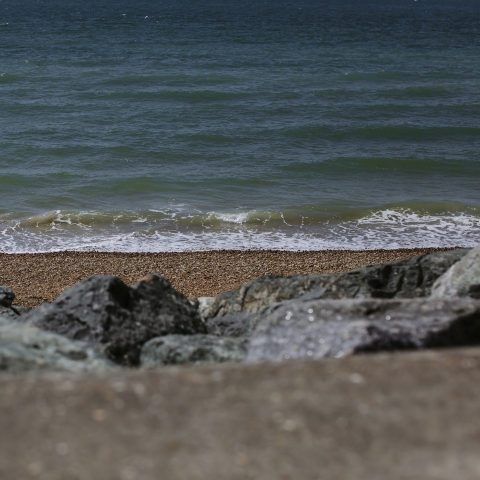
GREPPAO
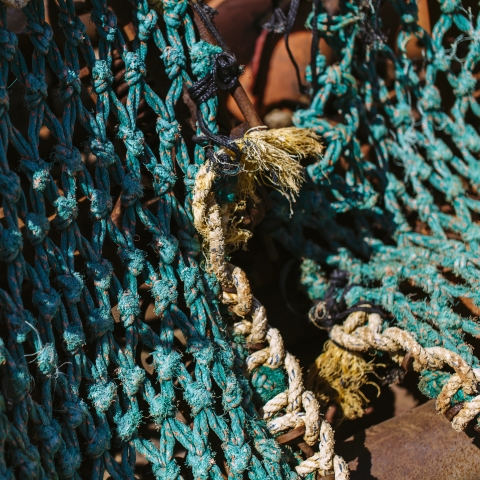
Gentoo Collaboration

BlueGreen Governance

Native Oyster Restoration
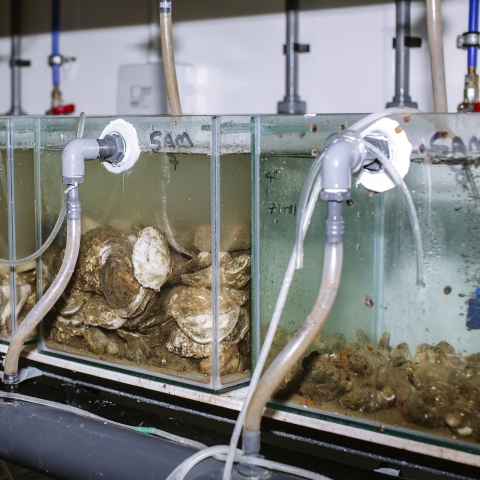
Competitive Angling as a Scientific Tool

Solent Seascape Project

Affiliated research centres and groups
UNESCO Chair in Ocean Governance
The UNESCO Chair in Ocean Governance develops around the domain of Ocean and inland waters governance (Blue Governance) that is transdisciplinary by nature.

Institute of Marine Sciences
Explore the marine ecosystems of the Solent European Marine Site at our shoreside marine station, complete with floating research platform, £2 million aquarium and laboratory suite.

Revolution Plastics Institute
From combatting microplastics to analysing plastic policies around the globe, we’re putting our research into practice, working with local groups, organisations, businesses and individuals to solve the planet's plastic problem.
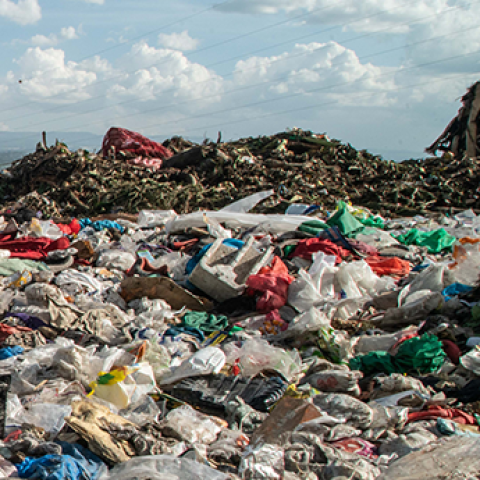
Institute of the Earth and Environment
The Institute of the Earth and Environment brings together leading expertise, spanning the six interconnected spheres of the Earth system: geosphere, hydrosphere, cryosphere, atmosphere, biosphere, and the anthroposphere.

Publication highlights
2026
Artificial intelligence enhanced litter pollution mapping: integrating citizen science with geospatial and social data
Rezaei, H., Roberts, K., Arabikhan, F., Fletcher, S., March, A. L. A., Couceiro, F., Bacon, D., Hutchinson, D., Williams, J.
1 Feb 2026, In: Environmental Modelling & Software. 197, 18p., 106823
Research output: Article
Are Behavioral Ecotoxicity Endpoints Relevant at the Population Level? Evidence-Based Insights for Environmental Protection
Bertram, M. G., Ågerstrand, M., Balshine, S., Brand, J. A., Brooks, B. W., Dang, Z., Ford, A. T., Hollert, H., LeFauve, M. K., Manera, J. L., Martin, J. M., Michelangeli, M., Moiron, M., Moore, E. R.,
13 Jan 2026, In: Environmental Science & Technology. 60, 1, p. 86-95
Research output: Article
Microplastic dynamics and land contamination in deltaic environments- A systematic review of current understanding and knowledge gaps
Islam, M. A., Hoque, M. A., Couceiro, F., Fowler, M.
1 Jan 2026, In: Environmental Pollution. 389, 13p., 127396
Research output: Article
The effects of pyridine hydrochloride on sublethal behavioural endpoints in the common shore crab, Carcinus maenas
Giraud, E. A. J., Ford, A. T.
1 Jan 2026, In: Ecotoxicology. 35, 1, 9p., 4
Research output: Article
2025
Prioritising research on endocrine disruption in the marine environment: a global perspective
Pinto, P. I. S., Miglioli, A., LaLone, C. A., Baumann, L., Baynes, A., Blanc‐Legendre, M., Cancio, I., Cousin, X., Dang, Z., Dumollard, R., Ford, A. T., Green, C., Iguchi, T., Kearney, P., Knigge, T.,
25 Nov 2025, In: Biological Reviews
Research output: Article
Latest news and blogs
News
View all
New UN report outlines economic pathways for tackling planetary crisis

Ocean activists and academics call for urgent action on gender equality in ocean governance at UN conference

Study explores how fear impacts the financial health of the airline industry

New Study Reveals Urgent Need for "Blue Justice" in the Emerging Blue Economy

New Study reveals solutions to help boost Caribbean fisheries and aquaculture
Blogs
View all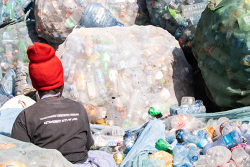
West Africa’s plastic waste could be fuelling the economy instead of polluting the ocean: experts
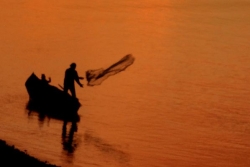
How marine fisheries can add millions of tonnes to Africa’s catch
Recent events and seminars
BlueGreen Governance: Evolutionary perspectives on coastal governance
Chaired by UoP CBG Theme Lead Dr Gianluca Ferraro, with keynote speakers Professor Raoul Beunen (Open Universiteit, the Netherlands) and Professor Kristof Van Assche (University of Alberta), this BlueGreen Governance webinar introduced 'Evolutionary Governance Theory' and developing strategies for sustainability transitions in coastal governance.
Took place: Tuesday, April 30 2024, 3.30-4.30pm GMT, online
"Deep Rising": Free screening hosted by the Centre for Blue Governance
During #GreenWeek2024 at the UoP, the Centre for Blue Governance was delighted to host a free screening of "Deep Rising", a film by Matthieu Rytz, and narrated by Jason Momoa.
This visually stunning film took our viewers inside the companies and technologies seeking to mine the ocean floor, and exposed the inner workings of the international organisation that is writing the rules for seabed mining, scrutinizing the case for and against that exploitation while exploring innovative solutions to both combat climate change and conserve the deep ocean.
It was lovely to see a fantastic turn-out of UoP staff and students at our CBG social event, and it has certainly sparked some interesting follow-on conversations. Check out our April newsletter for more info!!
Took place: Wednesday, April 24 2024, 4.00-6.00pm GMT, Buckingham Building, Lecture Theatre 1.01
Io Capitano - A special screening
The Centre for Blue Governance and No.6 Cinema were proud to screen the award-winning film Io Capitano, directed by Matteo Garrone, which explores the theme of migration and the plight of migrants on their perilous journey across Africa to reach European shores.
To introduce the central theme of migration, identities and cinematic journeys, the screening was preceded by a short presentation by the CBG Labour and Human Rights Theme Leads, namely Professor Dr Leïla Choukroune (Professor of International Law and Director of the Centre for Global Justice and Rights) and Dr Sophie Quintin (Maritime security expert).
Took place: Thursday November 28 2024 at 7pm at No.6 Cinema, Portsmouth (Bar from 6pm).
Centre management







For more details on the work of the Centre, please contact Helen Currie by emailing helen.currie@port.ac.uk or calling +44 (0)2392 844184
Research themes
Sub-topics
- Ocean and Water Governance
-
Marine and freshwater policies
-
Maritime security
-
Spatial planning
Theme lead: Dr Gianluca Ferraro
Deputy: Dr Tegan Evans
Sub-topics
- Seafarers’ rights and well being
- Ship breaking industry and sites
- Fisheries and labour
- Blue tourism and labour
- Blue economy human rights and labour rights awareness
- Blue economy modern slavery survivors access to remedy
Theme lead: Prof. Leila Choukroune
Deputy: Dr Sophie Quintin
Sub-topics
- Fisheries management
- Fishing by-catch of birds, turtles and mammals
- Aquaculture development
- Habitat conservation and restoration
Theme lead: Dr Ben Drakeford
Deputy: Cassandra Tocco
Sub-topics
- Marine renewables energies
- Logistics and safety
- Shipping
- Port management
- Oil spill prevention
- Biofouling and anti-fouling
- Off-shore technologies
Theme lead: Dr Negar Akbari
Deputy: Open chair
Sub-topics
- Marine and coastal ecosystem functioning
- Ecosystem carbon sequestration and storage
- Ecosystem resilience
- Marine debris litter and plastics
- Biodegradation and bioprospection
- Marine and coastal ecosystem service valuation
Theme lead: Prof. Joanne Preston
Deputy: Open chair
Our PhD students

Grégoire Touron-Gardic - Perspectives and Tools for improving Ocean Protection
About: Gregoire’s PhD is centred around three main and interdependent components of Blue Governance, as defined by the CBG. These components occur at different levels of intervention including: the “decision-making” aspect, i.e., how public policies can positively impact environment management; marine resources and the public policies which govern them; specific management tools, highlighting how public policies are implemented. Grégoire is doing a PhD by publication.
Expected completion: 2024
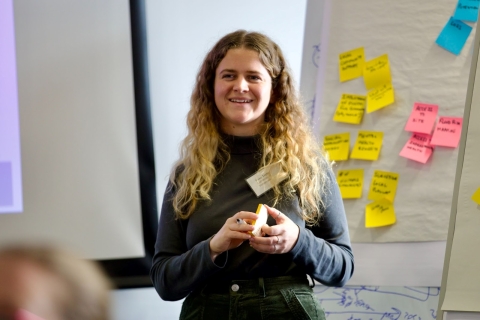
Daisy Taylor - From Marine Protected Areas to Nature-based solutions
About: Daisy's PhD will be exploring stakeholder and community interactions with marine and coastal nature-based solutions (NbS). The success of NbS has been connected to the inclusion of the community that surrounds them, with the rationale that by including the community as stakeholders, NbS may be developed with increased longevity, ecosystem services, benefits and acceptance. The project will evaluate how stakeholder understanding can impact the designation and implementation of marine and coastal nature-based solutions.
Expected completion: 2025

Oliver Hughes - Non-target analysis, suspect screening and the ecotoxicology impact of polar organic contaminants of emerging concern in UK river waters
About: Oliver’s PhD focuses on the chemical profiling of polar organics (e.g., pesticides, pharmaceuticals, PFAS, tyre compounds) in chalk-stream rivers using ChemCatcher passive sampling. The project aims to establish links between the presence and concentration of chemical contaminants and their mixtures, and the health and diversity of macroinvertebrate species. This work will provide valuable insights into the effects of chemical mixtures on aquatic ecosystems.
Expected completion: 2026

Toby Meredith - Investigating the use of drones for sea border surveillance and maritime search and rescue of migratory routes to post-Brexit UK: Frameworks, experiences and policies
About: Due to post Brexit border control changes, those wishing to seek asylum in the UK are having to use increasingly high risk methods to do so; mirroring migrant crossings in the Mediterranean. Using the marine migratory route for small boats in the English Channel, Toby's PhD will investigate the proliferation of drone technology and whether its use propagates the securitisation of asylum seekers and refugees. Drone technology can be used to search wide areas of the sea, either as part of border control operations or rescue missions. By investigating the experiences of NGOs, those seeking asylum and governmental organisations the aim is to inform policies and ethical frameworks on the use of drones in the English Channel. The PhD is funded by the South Coast Doctoral Training Partnership, with funds from the UK ESRC, and sitting within the Citizenship, Governance & Security thematic cluster.
Expected completion: 2026

Henry Obanya - Effects of car tire particles and additives in aquatic ecosystems
About: Henry’s PhD studies emerging environmental contaminants which are used as additives in making car tires. He is working with other experts to develop priority areas of research within this scope to find sustainable solutions to the rising issues. His work includes the chemical profiling of UK waters that collect road runoff from major highways. He also explores the behavioural effects of these contaminants on marine organisms.
Expected completion: 2025

William Nii Amugi Tackie-Yarboi - How Sustainable Finance and Climate Litigation can influence the achievement of Sustainable Marine Resource Management in Africa
About: William’s PhD research will consider three key concepts; Blue Economy, Sustainable Finance and Climate Litigation. Investors and policymakers are beginning to recognize the growth prospects for the ocean economy, its potential for future employment creation and innovation, and its role in addressing global challenges. The results of activities connected to ocean, if well-managed, can positively contribute to the continent’s economic take off. However, these activities including the exploitation of marine resources are mostly capital intensive and do have associated climate/environmental, economic and social impacts. This brings to fore the need for sustainable financing. Specific to the associated environmental impacts of ocean activities, this research will look into the concept of climate litigation which is increasingly becoming a focus for the climate change mitigation. The objective is to establish the nexus between the three concepts and how they feed into sustainable marine resource management.
Expected completion: 2027
PhD Opportunities
The Centre for Blue Governance is involved in several doctoral training schemes that provide funding and development opportunities for PhD students. We are also always keen to hear from interested students looking to develop their own proposals and fund their projects in other ways. An overview of openly advertised funded opportunities, and other funded and self-funded PhD routes are outlined below.
Listening to life: Acoustic and AI Technologies for Tracking Freshwater Biodiversity Recovery
Application Deadline: 5pm (UK time), 17th December 2025
Supervisory Team: Dr Edward Smart (University of Portsmouth), Dr Helen Currie (University of Portsmouth), Prof. Carl Sayer (University College London)
A fully funded PhD opportunity, offered through the NERC TREES Doctoral Landscape Award, based at the University of Portsmouth in collaboration with University College London.
Project overview: Freshwater ecosystems are among the most threatened habitats on Earth, yet they are vital for biodiversity, climate resilience, and human wellbeing. This project aims to change how we listen to, interpret, and protect these environments — from chalk stream restoration in Southern Hampshire to ghost pond resurrection in the Brecks Fen Edge of West Norfolk. Using tools like passive acoustic monitoring, mini drones, camera traps, and AI-driven analysis, the project will create real-time insights into ecological recovery — detecting the return of rare and elusive species that traditional methods often miss.
Find out more and apply via THIS LINK.
Towards a water literate society: Deconstructing environmental habit forming in early childhood
Application Deadline: 16th January 2026
Supervisory Team: Dr Tara Woodyer, Dr Julia Brown, Dr Helen Currie
A fully funded PhD Opportunity, offered through a University of Portsmouth Faculty Funded competitive bursary award.
Project overview: Water scarcity is no longer a distant concern — it’s a growing reality here in the UK. The Environment Agency warns of a potential 5 billion litre per day deficit by 2055, and we’re already seeing the impact on ecologically sensitive and globally unique freshwater environments, including the chalk streams of Hampshire. These habitats are under pressure from abstraction and changing climates — yet our collective water awareness remains remarkably low. This PhD project brings together social geography, environmental sustainability, and behavioural change to understand how early childhood routines influence lifelong water habits. Together, we’ll work towards developing a child-centred water literacy programme to support sustainable water use and protect fragile ecosystems.
Find out more and apply via THIS LINK.
Fate and consequences of emerging contaminants in the aquatic environment
Application Deadline: 5pm (UK time), 17th December 2025
Supervisory Team: Prof. Gary Fones (University of Portsmouth), Prof. J. Iwan Jones (Queen Mary, University of London), Megan Robertson (Wessex Water)
A fully funded PhD opportunity, offered through the NERC TREES Doctoral Landscape Award, based at the University of Portsmouth in collaboration with Queen Mary, University of London, and Wessex Water.
Project overview:
Freshwater quality in the UK is facing increasing pressure as chemical pollution emerges as a critical environmental challenge. From agrochemicals and pharmaceuticals to tyre-derived compounds and PFAS, human activities are introducing a complex mix of contaminants into our rivers. Much of this pollution enters through treated wastewater discharges, yet we still know surprisingly little about how these chemical mixtures behave — or how they affect the ecosystems that depend on clean water. This PhD project will investigate the impact of these polar chemical mixtures on freshwater macroinvertebrate communities downstream of water recycling centres (WRCs). Using Chemcatcher passive samplers and advanced analytical tools such as liquid chromatography time-of-flight mass spectrometry, you will monitor and characterise contaminants up- and downstream of several WRCs on the River Avon (Hampshire/Wiltshire) and its tributaries. The findings will inform experimental studies at the River Laboratory in Dorset, where semi-natural mesocosms will be used to explore how real-world chemical exposures shape biodiversity.
Find out more and apply via THIS LINK.
Assessment of the sources, transport and fate of PFAS in soil, sediment, surface and groundwater and biota in England, with a focus on the River Thames catchment
Application Deadline: 16th January 2026
Supervisory Team: Dr Kabari Sam, Prof. Gary Fones, Dr Mo Hoque
A fully funded PhD Opportunity, offered through a University of Portsmouth Faculty Funded competitive bursary award.
Project overview: Per- and polyfluoroalkyl substances (PFAS) — often called “forever chemicals” — have become a major global environmental and public health concern. Used in everything from firefighting foams and non-stick cookware to industrial coatings, PFAS are now found throughout soils, sediments, and waters across the UK. Their remarkable chemical stability means they persist in the environment, travelling through air, water, and biota with little degradation. As a result, many sites in England — particularly near landfills, sewage treatment works, and industrial zones — show PFAS concentrations exceeding 1000 ng L⁻¹. Yet, despite their ubiquity, major knowledge gaps remain around how PFAS move, transform, and interact within complex catchment systems. This PhD project aims to unravel the sources, pathways, and mechanisms driving PFAS transport in the River Thames catchment. Working in collaboration with the Environment Agency, Rivers Trust, and leading water companies (e.g. Thames Water), you will collate and analyse PFAS data across multiple environmental matrices — including water, sediment, and biota. Using this evidence base, you will model the fate and migration of PFAS under varying environmental conditions and develop an innovative multi-criteria risk-ranking tool that goes beyond simple concentration metrics.
Find out more and apply via THIS LINK.
How does your carbon flow? Understanding the sources and sinks of blue carbon and nutrients across temperate coastal seascapes to inform evidence-based restoration that delivers biodiversity and climate targets and supports blue finance markets.
Application Deadline: 16th January 2026
Supervisory Team: Dr Nicolai Roterman, Prof. Joanne Preston, Dr Sarah Reynolds
A fully funded PhD Opportunity, offered through a University of Portsmouth Faculty Funded competitive bursary award.
Project overview:
Marine coastal environments are vital carbon (C) and nitrogen (N) sinks, playing a crucial role in mitigating climate change and eutrophication. Yet these habitats — from saltmarshes and seagrass meadows to oyster reefs and mudflats — are under increasing pressure from human disturbance, leading to widespread degradation and loss of stored carbon and nutrients. The Solent, on England’s south coast, provides a powerful model for understanding these processes. Despite its ecological importance, we still lack a detailed understanding of how this region stores and cycles C and N across its diverse marine habitats. This PhD project will quantify the sources and sinks of blue carbon and nitrogen in sediments across the Solent seascape, focusing on saltmarshes, seagrass meadows, mudflats, and intertidal oyster reefs. Working with world-class marine restoration initiatives, including the Solent Seascape Project, you will conduct extensive fieldwork to sample vegetated habitats, subtidal mudflats, and plankton biomass. Using stable isotope and environmental DNA techniques, you will trace the origins, fates, and storage pathways of carbon and nitrogen. These data will be integrated through isotopic mixing models to estimate contributions from natural and anthropogenic sources. Through this interdisciplinary approach, you will gain advanced training in stable isotope and eDNA analysis, contributing to evidence-based management of nearshore environments.
Find out more and apply via THIS LINK.
There are a range of funded opportunities available at CBG. An overview is provided below, and interested students are encouraged to contact potential supervisors.
South Coast Doctoral Training Partnership (SCDTP)
The ESRC SCDTP is now accepting funding applications from students wishing to commence studies in the 2026/27 academic year (Application Deadline: 16th January 2026, 5pm UK Time). Studentships are funded by the Economic and Social Research Council (ESRC) for social science research in Area Studies, Business and Management, Criminology, or Psychology. Three routes of funding exist to complete either: 1+3.5 (Master's programme + 3.5 years PhD programme funding), +3.5 (PhD programme funding), or +4.5 (PhD programme + Research-in-Practice placement).
Find out more via THIS LINK.
Apply via THIS LINK.
NERC TREES Doctoral Landscape Award
The University of Portsmouth is a hosting partner in the NERC TREES Doctoral Landscape Award, which provides funded studentships and outstanding development opportunities. TREES (Training, Research, and Equity in Environmental Sciences) is designed to equip the next generation of environmental scientists to tackle critical global challenges.
Applications for the 2026 round close in January, with at least three more annual calls for applications. Advertised CBG affiliated projects within the TREES scheme are outlined above as advertised opportunities, and students are also encouraged to develop their own PhD project idea in collaboration with research staff via the Route 2 scheme.
Interested students are encouraged to reach out to CBG staff working in an area that interests them. When reaching out, it is advisable that you provide identified staff with an outline of your research interests and potential project ideas. Exciting PhD projects can be co-designed at any time.
Study with us
The Blue Review
Our regular newsletter, the Blue Review, provides an update of CBG activities, recent publications, and project updates. It also includes a wealth of opportunities such as events to attend, courses, job opportunities and conferences.
Contact us
Reach out to us, or follow us on social media
-
Email us at CBG@port.ac.uk
-
Follow us on LinkedIn





